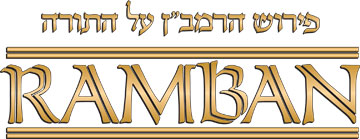RABBI ARTHUR SEGAL: CHUMASH CANDESCENCE PARASHA BESHALACH EXODUS 13:17 TO 17:16 / Tu B'Shevat
CHUMASH CANDESCENCE
PARASHA BESHALACH
EXODUS 13:17 TO 17:16
SHABBAT SHIRAH (SABBATH OF SONG)
and the Holiday of Tu B'Shevat
RABBI ARTHUR SEGAL
Via Shamash Org on-line class service
Jewish Renewal www.jewishrenewal.info
Jewish Spiritual Renewal
Jewish Spirituality
Eco Judaism
Hilton Head Island, SC, Bluffton, SC, Savannah, GA
"Moses stood at da Red Sea sho,
Smotin' dat wadah wit a two by fo."
So sang the African American slaves during our country's shameful
"peculiar institution," echoing Miriam as she sang more than three
thousand years before: "Sing to God for He is exalted above the arrogant,
having hurled horse and rider into the sea" (Ex 15:21).
Only a mere seven days after their triumphant leaving of Egypt, our
ancestors found themselves on the shore of the sea of reeds with the
army of Pharaoh approaching. We "were very frightened ...and we cried to
Moses: Were there no graves in Egypt that you took us to die in the
wilderness?" (Ex 14:10-11). And then God said to Moses "Why do you cry
out to me?" (Ex 14:15). This implies according to the fifteenth-century
rabbi Ovediah Sforno, that Moses was praying to God for help. And God says to
Moses, "stop moaning, and do something!"
Israel and Moses are told by God not to pray at this time as prayer is
not the proper response when people are facing danger. According to
Rashi, God commanded that the prayers be stopped and our ancestors show
they had faith not only in God, but in themselves, by taking action to
escape Pharaoh's legions.
When we were safely on dry land, we gave thanks to God in wondrous song,
which is how this Shabbat gets in special name, Shabbat Shirah, the
Sabbath of Song (Ex 15:01-21). But only three days later after
witnessing the miracle of the splitting of the sea and the drowning of
their pursuers, the children of Israel are singing a different tune.
"Muddah n sistah sittin in da shade
talkin bout da money dat I aint made,"
goes the second verse of the aforementioned Gullah song. It sure is easy
to sit comfortably in the shade and complain about the entitlements that
you are not receiving, it implies.
Our people came upon the waters of Mirah, which tasted bitter, and we
complained. Note that the water was drinkable, it just was not sweet. So
Moses threw a tree into the water and flavored it (Ex 15: 22-25). We did
not take action for ourselves, but sat down, sang the blues, hoping for
a quick fix and a rescuer.
Only a few weeks later, instead of searching for our own food by hunting
or foraging, we complained some more. We were given manna each morning,
except on Shabbat ( Ex 16:01-05). This lasted for forty years as we
wandered the desert. We had forgotten so quickly about our songs of joy, and we
learned well the laments of the blues.
In contrast, this Shabbat we celebrate the new year for trees, Tu
B'Shevat, the Jewish earth day. This holiday exemplifies what modern
Liberal Judaism is about: Action. We Jews celebrate this holiday by resolving to
improve ourselves and the world around us. The rabbis say that this is
the day that trees begin to form new fruit. The trees need proper nurturing
and so do our souls.Take lessons from trees in these dispiriting times
We as Jews always did best when we were proactive and not reactive. We
fared the worst when we expected divine intervention without our working
hand in hand with God as a partner for change.
The concept of Tikun Olam, repair of the world, involves us in a
partnership with God. In this week's Haftorah (Judges 4:04 to 5:31) we
see plainly how Jews can take action and change events. Deborah and Jael,
two brave women, did not wait for permission from the male hierarchy to
act. When the Canaanite king Jabin and his general Sisera were dominating
our people after Joshua's conquest of Canaan, Deborah and Jael acted by
luring and drugging General Sisera and hammering a tent peg into his
head. This Haftorah has an equally famous song: Israel "ceased
living...until I, Deborah, arose, as a mother of Israel!" (Judges 5:07).
We as individuals need not feel powerless to change our lives and improve
our world. We need not feel incapable of feeding ourselves or sweetening
our pools of water. We can on a daily basis remember to sing daily
praises and brachoth for all that we have. We can feed ourselves with
wisdom and drink from the words of our ancestors. We can amend and adapt
our traditions to liberate ourselves and become closer to God and to each
other.
Ezra decreed that because just three days elapsed from the miracle and
the song at the sea, to the blues at the pool of bitter waters, that we
should not go more than three days without nourishing our souls with
Torah study. This is why Ezra, after the return of our people from
Babylon, instituted the public reading of Torah on Mondays, Thursdays,
and Shabbats.
We as individuals and as a holy congregation can do so much to help each
other and our community. Become involved with your temple this year,
study Torah or other Jewish spiritual texts. Volunteer at your child's
religious school or a your community's Boys/Girl's Club. Sing a New Song
this Shabbat. Plant a tree of life. We will find others to join with
us!!
"Serve God with Gladness, come before Him with Song...Give Thanks to Him,
Bless His name. For God is Good, His Chesed (kindness) endures
forever!" (Psalm 100 1-5)
Shabbat Shalom!
RABBI ARTHUR SEGAL
Via Shamash Org on-line class service
Jewish Renewal www.jewishrenewal.info
Jewish Spiritual Renewal
Jewish Spirituality
Eco Judaism
Hilton Head Island, SC, Bluffton, SC, Savannah, GA
The year's hottest artists on the red carpet at the Grammy Awards. AOL Music takes you there.





